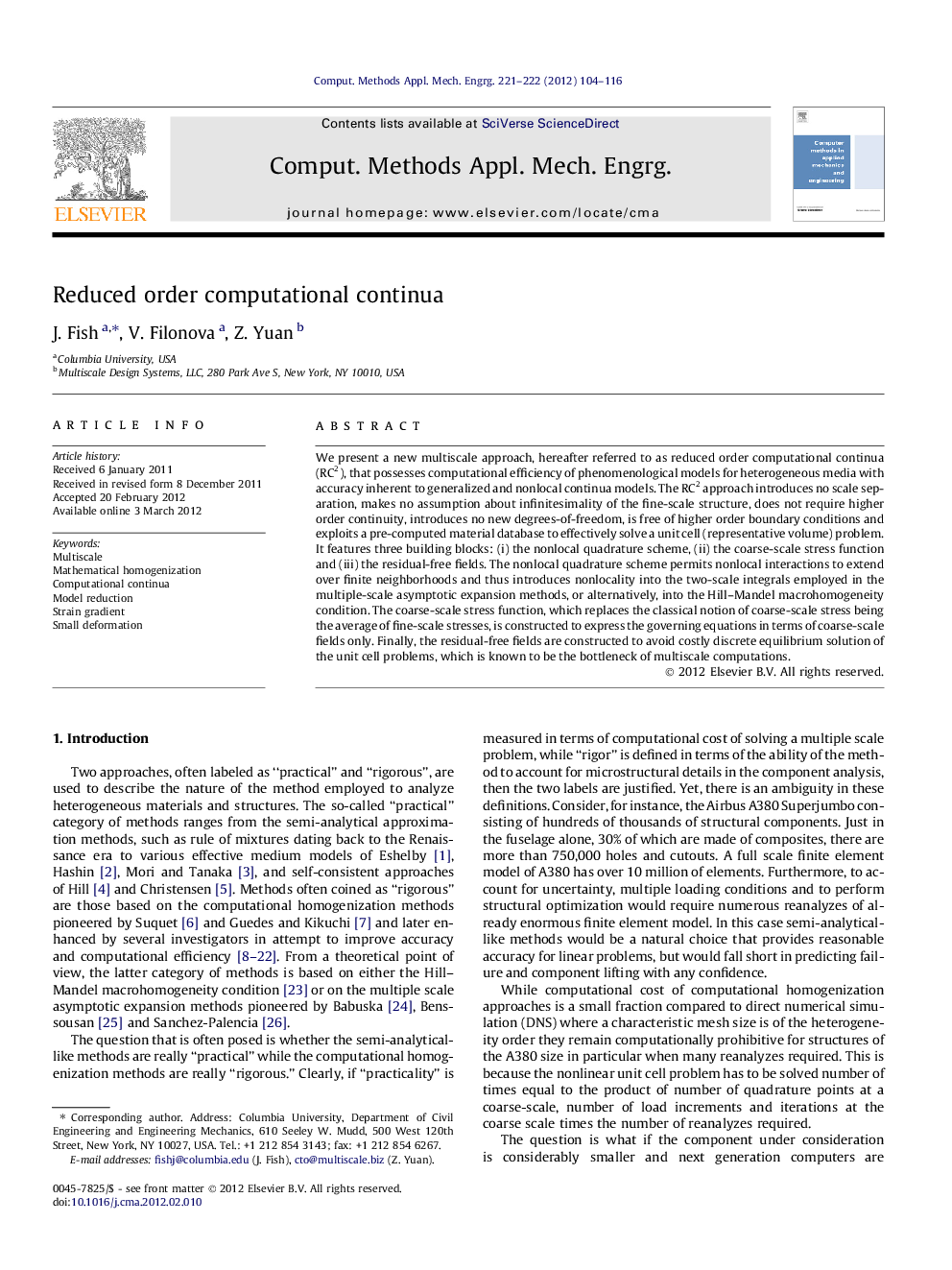| Article ID | Journal | Published Year | Pages | File Type |
|---|---|---|---|---|
| 6918699 | Computer Methods in Applied Mechanics and Engineering | 2012 | 13 Pages |
Abstract
We present a new multiscale approach, hereafter referred to as reduced order computational continua (RC2), that possesses computational efficiency of phenomenological models for heterogeneous media with accuracy inherent to generalized and nonlocal continua models. The RC2 approach introduces no scale separation, makes no assumption about infinitesimality of the fine-scale structure, does not require higher order continuity, introduces no new degrees-of-freedom, is free of higher order boundary conditions and exploits a pre-computed material database to effectively solve a unit cell (representative volume) problem. It features three building blocks: (i) the nonlocal quadrature scheme, (ii) the coarse-scale stress function and (iii) the residual-free fields. The nonlocal quadrature scheme permits nonlocal interactions to extend over finite neighborhoods and thus introduces nonlocality into the two-scale integrals employed in the multiple-scale asymptotic expansion methods, or alternatively, into the Hill-Mandel macrohomogeneity condition. The coarse-scale stress function, which replaces the classical notion of coarse-scale stress being the average of fine-scale stresses, is constructed to express the governing equations in terms of coarse-scale fields only. Finally, the residual-free fields are constructed to avoid costly discrete equilibrium solution of the unit cell problems, which is known to be the bottleneck of multiscale computations.
Related Topics
Physical Sciences and Engineering
Computer Science
Computer Science Applications
Authors
J. Fish, V. Filonova, Z. Yuan,
